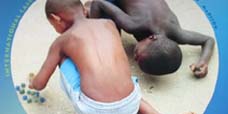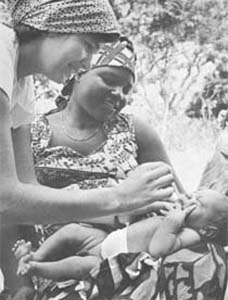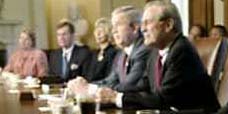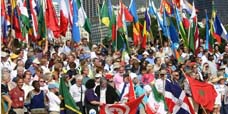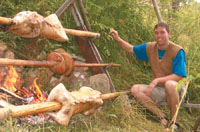
Bulgaria is now like a second home to Aaron Wills
Aaron Wills finds Peace Corps ‘exhilarating’
by Aaron Wills
Photos submitted Aaron Wills tending to lambs roasting over the fire.
It seems like ages ago that I stepped off the plane into Bulgaria, a small mountainous country the size of Tennessee, located north of Greece, as a U.S. Peace Corps Volunteer. My parents, Glenn and Marcia Wills, while supportive of my new adventure, were also quite worried about what I had gotten myself into. I can see my dad shaking his head and placing his hand on his forehead with exasperation at where I was off to now. Bulgaria was, after all until 1990, part of the ‘Iron Curtain.’
My first thought as I stepped out of the small airport in the capital city, Sofia, was, “Wow, I hope the rest of the country doesn’t look like this!” There was a stunning potpourri of large, grey concrete apartment buildings, affectionately known as ‘communist blocks,’ rusting, run down factories, and old metal security fences. The legacy of communism was remarkably evident in the bleakness of the surroundings. Luckily Bulgaria has turned out to be a beautiful country with wonderfully kind people who have supported me at every turn.
I came to Bulgaria in August 2003 and began my 27 month commitment with two and a half months of Peace Corps training, in the town of Batak which is around 4,000 people. As a way to adjust to life in a new country and study the local language intensively, volunteers live with a host family and study the Bulgarian language – all day, everyday for over two months.
Those first months were both exhilarating and frustrating. On one hand, everything was new – the people, the language and the customs. For instance, here people don’t smile for pictures. Wedding bands are worn on the right hand. Animals such as cows and sheep are kept in town and in people’s yards and shepherds walk them through the town streets every morning and evening (yes, this makes for messy streets). And most famously, Bulgaria is the only country in the world where to shake your head ‘no’ means ‘yes’ and to nod your head ‘yes’ means ‘no.’
On the other hand, I often felt like a first grader. It was a challenge to order a coffee or a beer at the café or buy a loaf of bread at the store. Attempts at speaking in Bulgarian were met with a blank stare. I remember the first time I went to the store to buy a loaf of bread. I was eager to use my new phrases from the Bulgarian lesson of the day. So I walked up to the counter to order a loaf of bread. Alas, every Bulgarian word I’ve learned has evaporated from my brain like water from the fields on a hot July day. I stood there as if mute. I feebly pointed to the bread behind the counter and said one in Bulgarian. The cashier gave me an understanding smile and took the necessary change from my outstretched hand. As I meekly shuffled out of the store I felt about six inches tall. It was a great lesson in humility.
One of my favorite memories from my time in Batak comes courtesy of my host father, Toma. Customarily eating supper in Bulgaria is a long two hour affair with numerous courses and time for conversation about the day’s events. I would guess maybe like meals were 50 years ago in Sauk Centre, when people had more time and life’s pace was more relaxed. So as I sat down for my first meal with my host family, Toma offered me rakia, a homemade brandy from grapes, to go with the salad of tomatoes, cucumbers, and feta cheese. In Bulgaria, the drinks are dictated by what food is to be served. Rakia is a must with salad. Beer or wine would be hypocrisy. I motioned for just a little bit in my glass. Toma set his pointer finger flat on the table to signify just a little, one finger’s width worth. He began pouring the rakia slowly into the low ball glass and a smile slowly crossed his face. I looked on in disbelief as he filled the glass right to the brim. Toma smiled, with a grin as wide as the Mississippi at Lake Pepin. I just stared down in shock. He stood his finger up on the table to show me how rakia was consumed in Bulgaria. One finger’s worth – except the length of your finger not the width. This was the first of many nights spent at the dinner table with Toma and his proudest possession: his homemade rakia. A good introduction indeed.
After one month in Batak it came time to find out where I would be spending the next two years working. I requested to live in a small, moutain village, where I could get to know the people and be a part of the everyday life.
I wanted to have my Ding-Dong Café and know the people I met on main street. And luckily, that’s what I got. I was heading to the village of Borino in the Rhodope Mountains (located in the south of the country on the border with Greece). Borino takes all day to get to from everywhere, has no internet, has no one who speaks English, and is one of the poorest areas in Bulgaria, but it’s a great place with amazing people that I’ve grown very fond of, and when it is time, will be tough to leave. It’s now like a second home.


